Prince Brutus is supposed to be the founder of London, which, if this is correct, was over 1,000 years before the Romans arrived in Britain. Prince Brutus ought to be very much better known than he is today if only as a mythical/legendary character, after all, Rome is allowed to have its Romulus and Remus myth - abandoned twins being raised by a she-wolf, improbable as it seems. Also King Arthur is known to virtually everybody and comes from the same historical sources. Currently Britain has the strangest history of all nations in that it is not allowed to know any of its ancient myths, it has not always been like this, as recently as the early 1970s there is evidence that the history was known at least mythically and the city of Bath seems to be still aware of its legendary founder1.
Brutus was supposed to be a Trojan prince descended from Trojans who had escaped the fall of Troy and had settled in Italy on the banks of the Tiber near to what would eventually be Rome. He was banished from Italy for killing his father in a hunting accident. Eventually he arrived in Greece and met with some fellow Trojans who had been kept in slavery since the Fall of Troy. Brutus became their leader and after a series of battles they not only freed the enslaved Trojans but also defeated the Greek king, effectively capturing Greece (it is of course highly unlikely that this is referring to the whole of modern Greece and is much more probable that it was a relatively small local Greek kingdom).
Having conquered Greece, they had the option to stay there but reckoned that eventually the Greeks would rise against them. In return for a fleet of ships, money, and supplies they agreed to leave and find a new land to settle. After many battles and picking up more Trojans along the way they finally came to Britain, chosen perhaps because the original inhabitants, the Cymry, were closely related to the Trojans. The Trojan fleet is said to have arrived at Totnes. It is not clear how peaceful this invasion was. It may not be coincidence that the ancient inhabitants of Dartmoor suddenly disappear at this time, but a national meeting was held and Brutus was declared ruler of all Britain. He toured the land to find a site for his capital city and London was chosen.
It is from Brutus that the 'British' kings were descended or the kings of the Ancient Britons as we would regard them now. Indeed Brutus was supposed have given his name to Britain.
Part of the Brutus problem was that as he was a Trojan, and from the Late Middle Ages up to the end of the nineteenth century, (because of Schliemann's excavations) Troy had been regarded as a myth and therefore Brutus was regarded as a myth too. Perhaps he was mythical, although there are far too many coincidences and his inclusion in so many different country's histories, for there not to have some real person behind the myth.
There is beginning to be a considerable interest in Prince Brutus and a book has been written called Brutus of Troy, and the Quest for the Ancestry of the British by Anthony Adolph. He is a professional genealogist, he doesn't believe in the histories as being true, he thinks they are made up, but that doesn't stop it being an excellent and enjoyable reference book about Brutus. You can read more about it here.
The best known source for Brutus is Historia Regum Britanniae, The History of the Kings of Britain by Geoffrey of Monmouth, a twelth century Welsh cleric.
Then there is Tysilio,
named after the best known cleric that worked on it. It is usually considered
a copy of Geoffrey of Monmouth by academics but there are substantial differences
and it is more likely to be Geoffrey's orginal source.
Here is some further material from E O Gordon's 'Prehistoric London its Mounds and Circles'
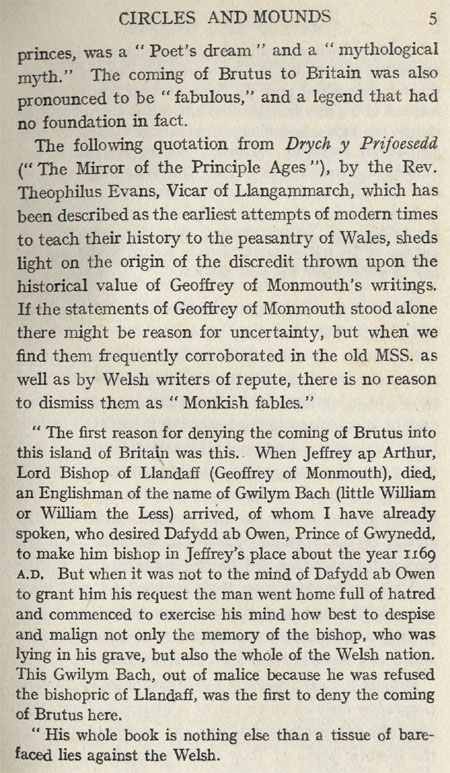
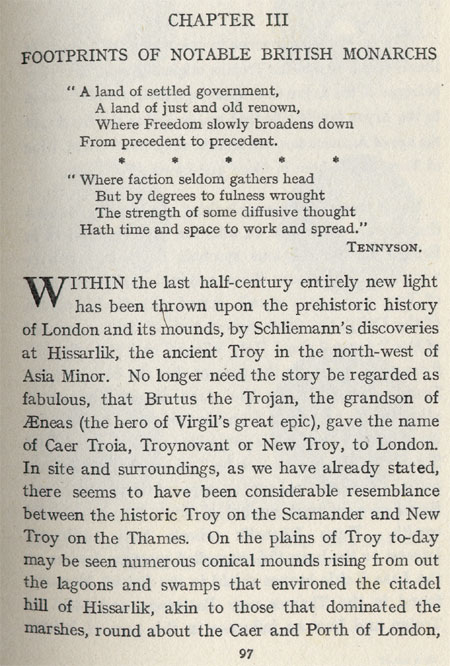
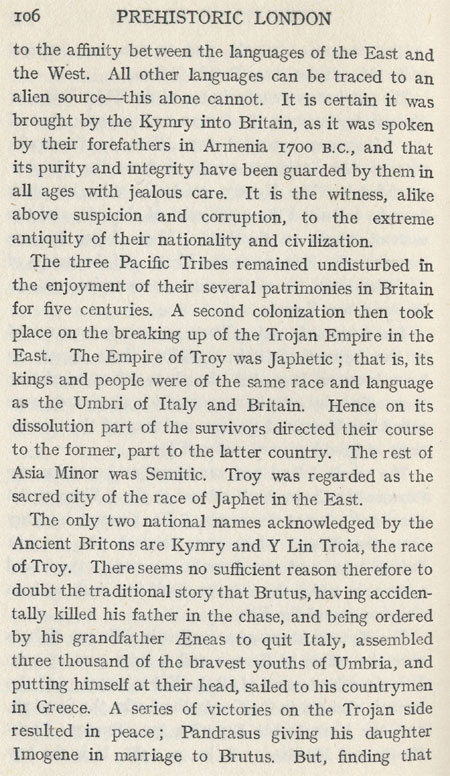
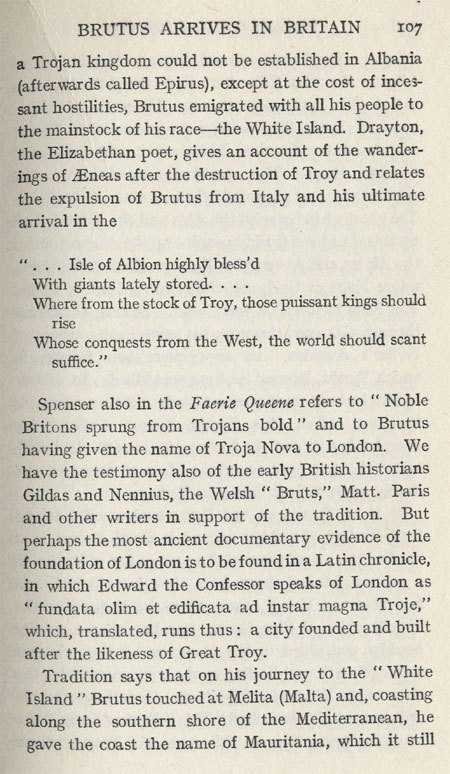
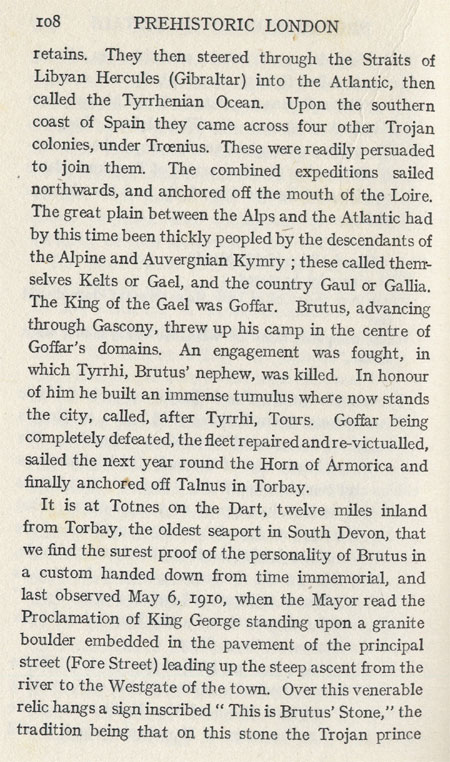
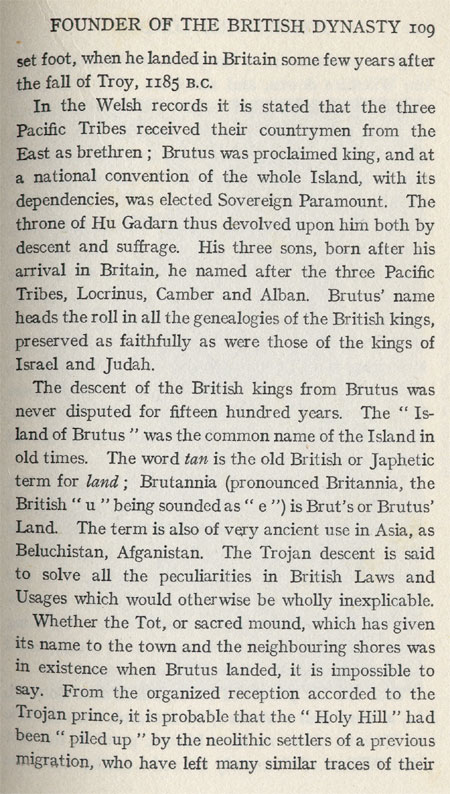
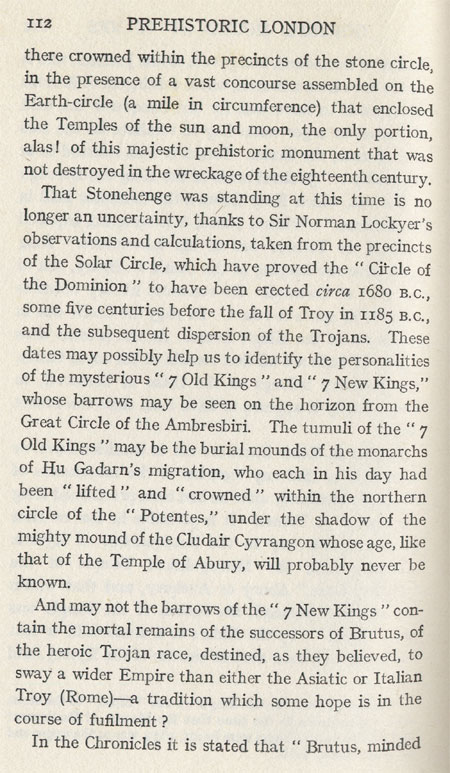
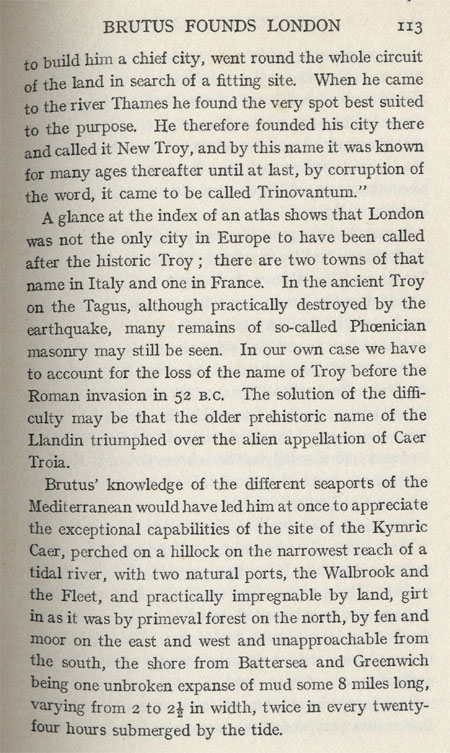
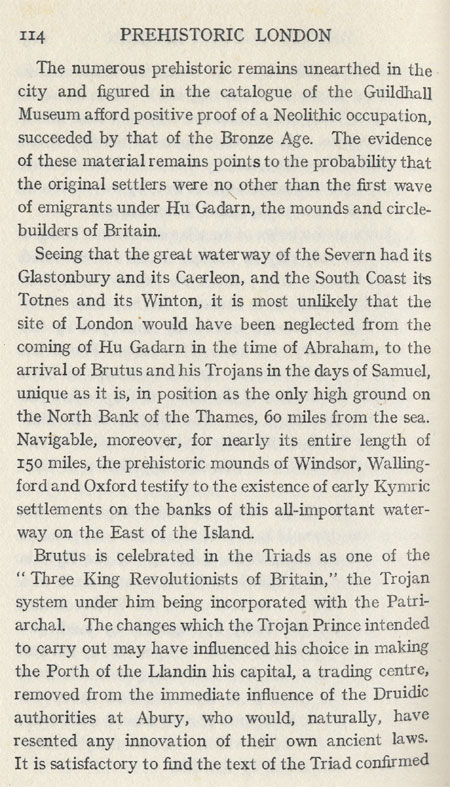
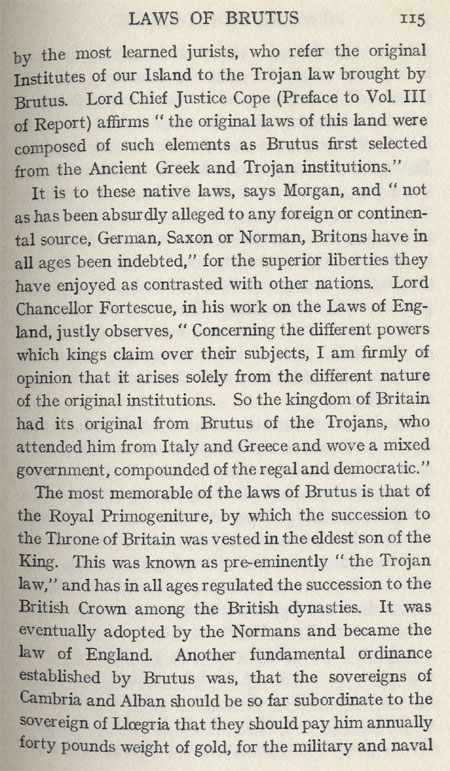
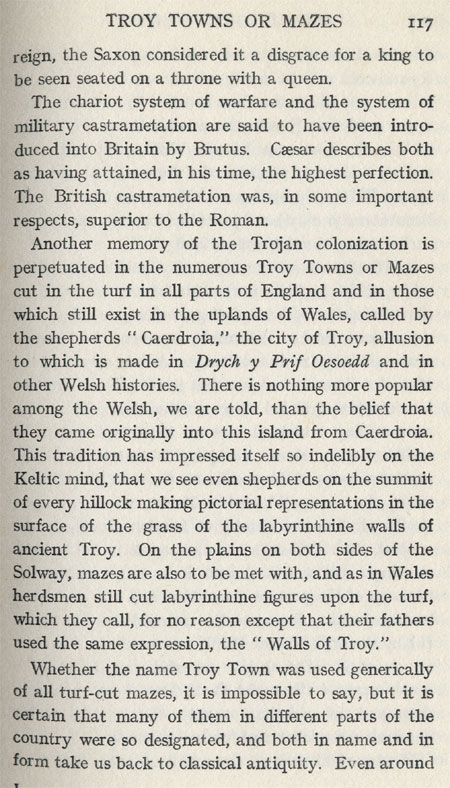
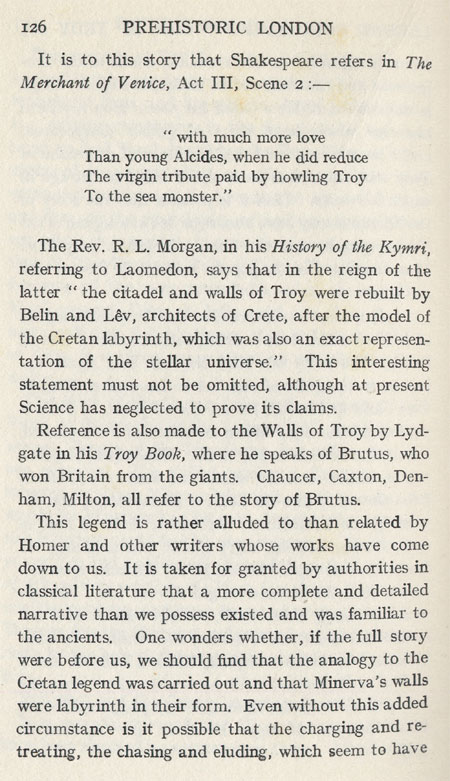
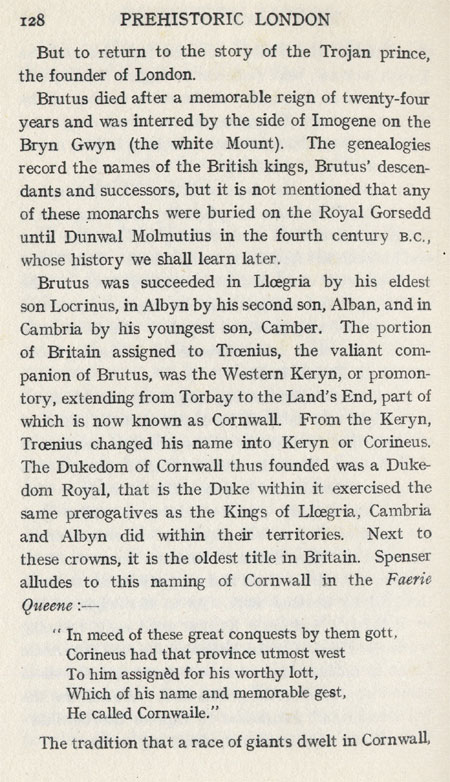
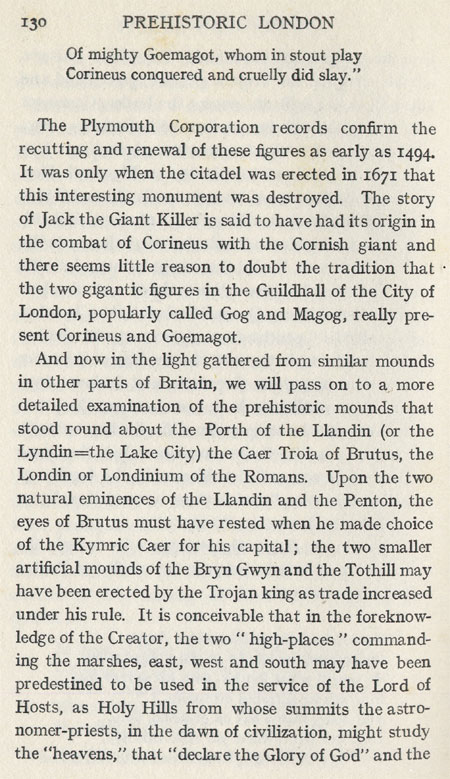
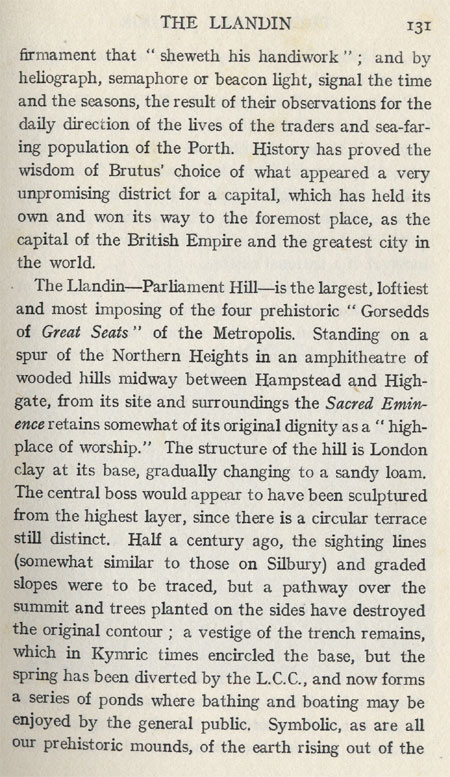
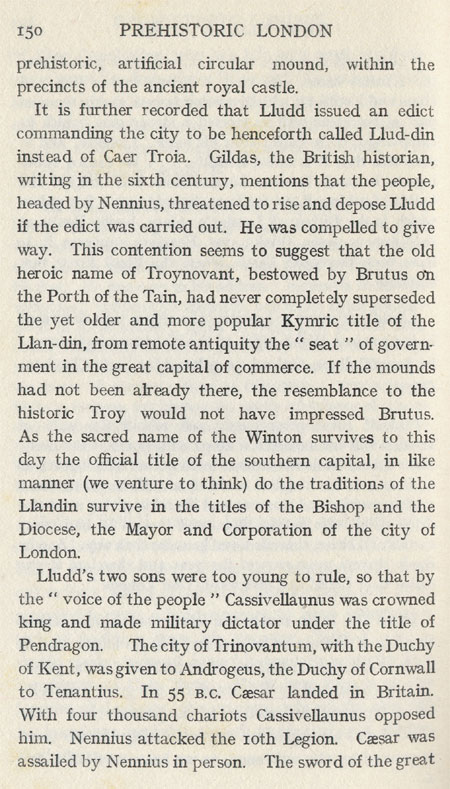
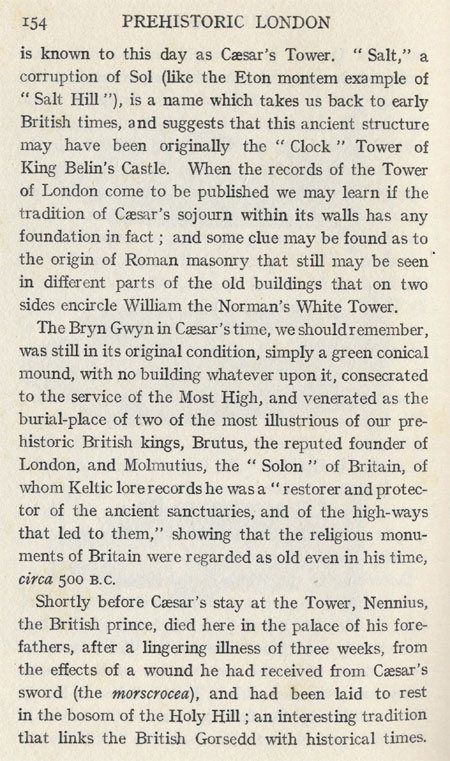
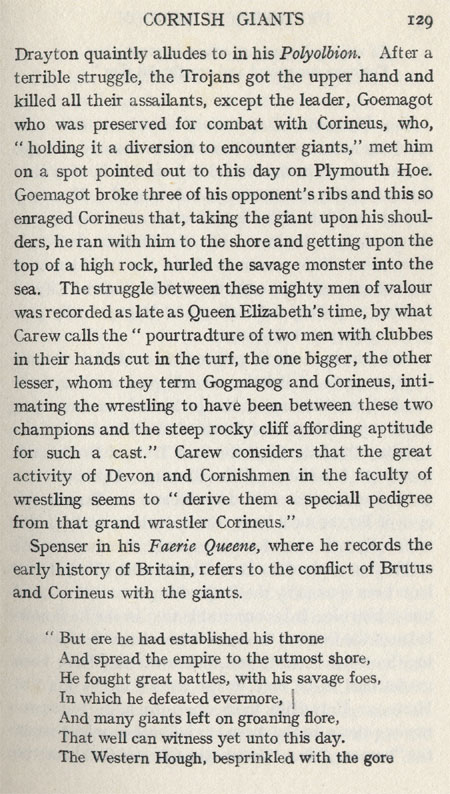
1, I remember being taught about King Lud at my primary school, as a myth of course. I also have a text-book for young people 'Aircraft' by John W. R. Taylor, Hamlin all-colour paperbacks published 1971, it mentions King Bladud and his doomed experiment with flying! athough mythical, this is the same Bladud that supposedly founded Bath.
home
|
missing Roman road | The
real Troy discovered
| pre-Roman London | Britain's
forbidden history | contact the author

